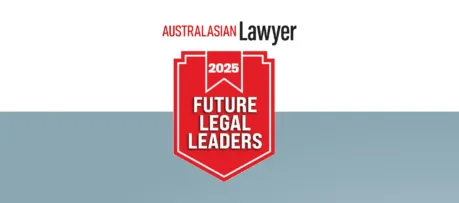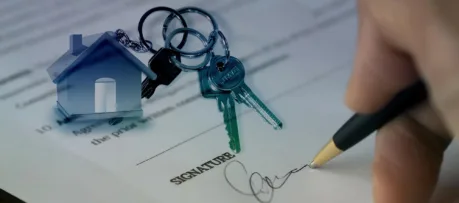The When and the How
Most people will be aware that, before the Court can make an Order determining how the property of a separated couple should be adjusted as between the two of them, or an agreement can be reached as to the same, the parties must either agree as to the value of the assets in their name, or if no agreement can be reached, the parties must obtain valuations from experts qualified to prepare such valuations.
It is often the case that experts are required for the purposes of such valuation exercises, in circumstances where there is either no agreement as to the value, or where the interest the parties hold in a particular asset or class of asset or entity is complex such that it requires an expert who specialises in valuing such interests to opine as to the value of the same.
People may not be aware that a distinction should be drawn between a “single expert” appointed by both parties jointly, from “adversarial experts” which may be appointed by the parties separately. It is therefore appropriate that we set out the rules regarding the appointments of experts, the appointments of adversarial experts in particular, and the rules regarding permission for the purposes of the same.
Rules as to retainer of experts in the Family Court of Australia
- Part 15.5 of the Family Law Rules 2004 is concerned with “expert evidence”. The purpose of Part 15.5 is stated in Rule 15.42 to be (emphasis added):
- To ensure that parties obtain expert evidence only in relation to a significant issue in dispute;
- To restrict expert evidence to that which is necessary to resolve or determine a case;
- To ensure that, if practicable and without compromising the interests of justice, expert evidence is given on an issue by a single expert witness;
- To avoid unnecessary costs arising from the appointment of more than one expert witness; and
- To enable a party to apply for permission to tender a report or adduce evidence from an expert witness appointed by that party, if necessary in the interests of justice.
Rules 15.44 and 15.45 (which are in Division 15.5.2) then provide for the appointment of a single expert witness either by agreement or by Court order:
“15.44
(1) If the parties agree that expert evidence may help to resolve a substantial issue in a case, they may agree to jointly appoint a single expert witness to prepare a report in relation to the issue.
(2) A party does not need the Court’s permission to tender a report or adduce evidence from a single expert witness appointed under Subrule (1).”
“15.45
(1) The Court may, on application or on its own initiative, order that expert evidence be given by a single expert witness.
(2) When considering whether to make an order under Subrule (1), the Court may take into account factors relevant to making the order, including:
- The main purpose of these Rules (see Rule 1.04) and the purpose of this part (see Rule 15.42);
- Whether expert evidence on a particular issue is necessary;
- The nature of the issue in dispute;
- Whether the issue falls within a substantially established area of knowledge; and
- Whether it is necessary for the Court to have a range of opinions.
(3) The Court may appoint a person as a single expert witness only if the person consents to the appointment.
(4) A party does not need the Court’s permission to tender a report or adduce evidence from a single expert witness appointed under Subrule (1).”
- Rule 15.49 then provides that if a single expert witness has been appointed to prepare a report or give evidence in relation to an issue, a party must not tender a report or adduce evidence from another expert witness on the same issue without the Court’s permission; such permission may be given if the Court is satisfied on any of the matters set out in Subrule 15.49 (2) (emphasis added):
“15.49
- If a single expert witness has been appointed to prepare a report or give evidence in relation to an issue, a party must not tender a report or adduce evidence from another expert witness on the same issue without the Court’s permission.
- The Court may allow a party to tender a report or adduce evidence from another expert witness on the same issue if it is satisfied that:
- There is a substantial body of opinion contrary to any opinion given by the single expert witness and that the contrary opinion is or may be necessary for determining the issue;
- Another expert witness knows of matters, not known to the single expert witness that may be necessary for determining the issue; or
- There is another special reason for adducing evidence from another expert witness.”
- Division 15.5.6 of Part 15.5 provides a “procedure for clarifying matters” contained in a report prepared by a single expert witness.
- We note the judgment of the Full Court of the Family Court of Australia of Bass & Bass [2008] FamCAFC 67, per Finn, Warnick & Thackray JJ. This decision was in relation to an application for leave to appeal by the Husband, arising from a first instance decision regarding the Husband’s application to adduce evidence from an additional expert, other than the single expert in those proceedings (involving parenting issues). Relevantly, their Honours opined at paragraph 49 therein:
“First, Division 15.5.6 of Part 15.5 provides a procedure for clarifying matters contained in a report prepared by a single expert witness. It was confirmed before us that that procedure had not so far been employed in this case. While we acknowledge that procedure may only be of limited assistance to the father given the nature of his complaints, we are nevertheless, of the opinion that that procedure ought to have been attempted before the application was made to Steel J, or to this Court.”
- We observe the judgment of Justice Strickland in the decision of Smith & Smith (No 2) [2009] FamCA 1223. In this decision, Justice Strickland was faced with an application by the Husband to adduce adversarial evidence (in circumstances, as in this case, where there has been an order previously made by the Court appointing a single expert for the same purpose). At paragraphs 31 and 33, Justice Strickland opined:
At 31: “Clearly I have to take into account the purpose of Part 15.5 in deciding this matter. However, in looking specifically at the issue at hand, I need to address Rule 15.49. It is not a case of simply going to 15.42 (c) and ignoring 15.49. In my view, I should address Rule 15.49 knowing that the purpose of the Part is “to ensure that if practicable and without compromising the interests of justice, expert evidence is given on an issue by a single expert witness.” Of course overarching Rule 15.49 and Rule 15.42 insofar as I take it into account, is that I have a discretion as to whether I allow or not the presentation of evidence from another expert witness….
At 33: “Rule 15.52 deals with an application for permission to tender a report or adduce evidence from an expert witness, but it applies in a case where there is no single expert witness. What I have sometimes seen in judgments is that in cases where there is a single expert witness and the issue is whether there should be evidence produced from another expert witness, reference has been made to the factors set out in Rule 15.52, and particularly Subrule 15.52(3). In my view, that is incorrect, however, Subrule 15.52(3) does set out a useful checklist of matters that might very well guide the exercise of the discretion by a judicial officer faced with the application that I have before me now…”
Justice Strickland then applied Rule 15.49 to the matters before him, ultimately not being satisfied that Rule 15.49 (2) applies, and not permitting the Husband to present the evidence of his proposed adversarial expert.
The purpose of all of the above rules is to have regard to the expense and complexities inherent in the retainer of adversarial experts which was the norm for a time in the Family Court system, and to attempt to avoid the same by placing the burden on parties to provide evidence as to some “special reason” why the Court should provide “permission” to tender a report or adduce evidence from an adversarial expert, as opposed to a single expert witness which is the preferred course.
Rules as to Retainer of Experts in the Federal Circuit Court of Australia
The rules about the retainer of adversarial experts in the Federal Circuit Court (which deals with less complex family law matters than the Family Court of Australia) are different from those in the Family Court of Australia. Where it is the clear purpose within the Family Law Rules 2004 (Cth), as they apply to the Family Court of Australia, to accommodate the appointment of a single expert in the first instance, unless some “special reason” justifies doing otherwise (that is, appointing adversarial experts), the Federal Circuit Court per Regulation 15.08 of the Federal Circuit Court Rules 2001 (Cth) provides as follows:
“(1) This rule applies if 2 or more parties to a proceeding call expert witnesses to give opinion evidence about the same, or a similar, question.
(2) The Court may give any direction that it thinks fit in relation to:
(a) the preparation by the expert witnesses (in conference or otherwise) of a joint statement of how their opinions on the question agree and differ; or
(b) the giving by an expert witness of an oral or written statement of:
(i) his or her opinion on the question; or
(ii) his or her opinion on the opinion of another expert on the question; or
(iii) whether in the light of factual evidence led at trial, he or she adheres to, or wishes to modify, any opinion earlier given; or
(c) the order in which the expert witnesses are to be sworn, are to give evidence, are to be cross-examined or are to be re-examined; or
(d) the position of witnesses in the courtroom (not necessarily in the witness box).
Example: The Court may direct that the expert witnesses be sworn one immediately after another, and that they give evidence after all or certain factual evidence has been led, or after each party’s case is closed (subject only to hearing the evidence of expert witnesses) in relation to the question.”
Whereas the Family Law Rules provide a significant evidentiary hurdle in the form of what has been described as “the procedure for clarifying matters” per Part 15.5 therein before adversarial experts may be appointed, in the Federal Circuit Court, if a party seeks to tender a report from a further expert (that is, an adversarial expert) where a single expert has already been appointed, then Regulation 15.12 of the Federal Circuit Court Rules provides:
“If a court expert has made a report on a question, a party may adduce evidence of another expert on the question with the leave of the court.”
Whilst that leaves the question as to how the Federal Circuit Court would apply this discretion and whether it would be appropriate or in the interests of justice to allow a party permission to adduce evidence from “another expert”, open to interpretation, one would expect that the matters raised in the Family Court Rules are apposite to the application of the discretion of the Federal Circuit Court.
There are often times in family law proceedings where it is necessary to have regard to the rules regarding appointments of experts and the procedures in that regard. We take due care and skill in advising as to these procedures at all appropriate times.



